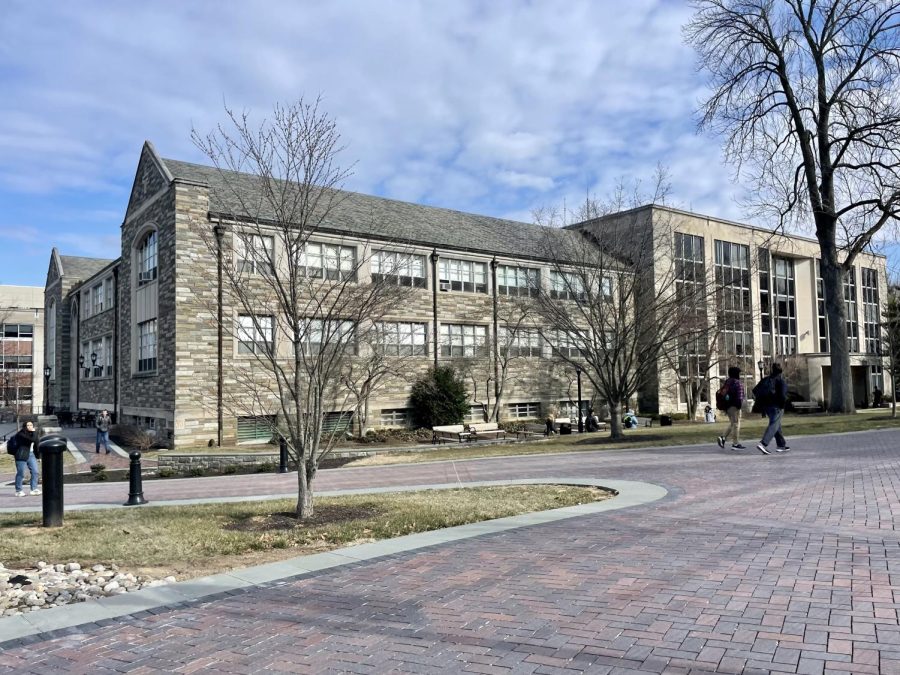University Members React to ChatGPT on Campus
February 8, 2023
On a Tuesday morning, a political theory professor facilitates a conversation with his students about the issue of ChatGPT in his course. Reactions to the topic are all over the spectrum, with some students knowing a lot about the subject and others being only vaguely familiar with the programming. Students debate its ethical implications, whether they would use it or not and if there is anything good to come out of this type of programming.
Discussions like the one detailed above seem to be happening all over campus as students and professors learn about the new AI programming that has the potential to have serious effects on the workloads and learning of students.
In November, an American artificial intelligence company called Openai launched a new program called ChatGPT, with which many college students are now familiar. Because it came out right before finals, students had access to the programming as they took on their final exams, papers and projects. The program allows users to plug in a question, and then it will automatically generate a response to the question. This can include general curiosity questions, or, in terms of college classes, essay prompts.
To test the accuracy of the program, one could look up a basic question like “Who won the Superbowl in 2018?” Students admitted to having fun on the program and testing its limits. However, that is not the only way students have been using ChatGPT.
A student who requested to stay anonymous has been using the program since it came out.
“I started using ChatGPT the day it came out. As a computer engineer, I am always up to date on all the new things coming out in that field and it caught my eye,” the student said. “I mainly started using it because it piqued my curiosity as an engineer so I wanted to start pushing it to see what it could really do since it is the cutting edge of AI currently.”
While students have expressed worry about professors catching on to them using the program, this student has not been concerned, even as they continue to use the program.
“I was never afraid of getting caught and never did,” the student said. “I view this chat bot as any other tool or source on the internet. I think it is plagiarism if you do just copy exactly what it says and say it is yours. The way I used it mainly is to just quickly pull up information or help me solve a problem I was working on…I would use it to help spark ideas for my own writing and used it as an editing tool where I fed it my own writing and it fixed the grammar.”
Openai also recently came out with a program that detects AI-written text. This new program might be something to pay attention to as professors and school administrators across the country grapple with how to deal with the prevalence of programs such as ChatGPT on college campuses.
Faculty across campus have been talking informally about the situation, as well. Dr. Heidi Rose, the chair of the Department of Communication, has been talking about the AI program with colleagues since it came out late last semester.
“In late December, I started hearing more about the growing popularity of using AI-generated text in various contexts,” Rose said. “Then in early-mid January I started hearing and reading more about Chatbot as related to academic integrity. I read a comprehensive article in the New York Times, and Villanova’s Vice Provost for Teaching and Learning circulated an email to all faculty drawing attention to students’ use of Chatbot and offering suggestions for addressing it in our classes.”
Rose said the topic of ChatGPT is going to be on the agenda for the Department of Communication’s February faculty meeting, although she has been involved in informal conversation with her colleagues for a while now.
As for ways to combat the use of ChatGPT for classwork, Rose shared that the Vice Provost for Teaching and Learning offered suggestions to faculty.
“The Vice-Provost’s office offered some helpful solutions, including: addressing AI-generated text directly in class and on syllabi and clarifying that its use is considered an academic integrity violation; creating writing prompts highly specific to course readings and other material, that ask students to respond to each other’s work or ideas in discussion board posts and that ask students to reason and build arguments; and craft writing assignments that include multiple steps so that students submit their work at various stages of development,” Rose said.
Rose also shared some of her personal thoughts about the new AI program.
“Chatbot seems to be one more supposed time- and labor-saving device that ultimately takes something away from human ingenuity, human thought, and human interaction,” Rose said. “I don’t think students would want AI-generated responses to their work rather than from their professors, right?”
Dr. Randy Weinstein, the Vice Provost for Teaching and Learning, commented directly to The Villanovan on the topic, as well.
“There is no University-wide ban on ChatGPT as there could be many excellent uses for it in classes, if faculty allow its use, and it is properly cited with its output critically analyzed,” Weinstein said. “The issues really arise when you claim ChatGPT as your own work.”
Weinstein also shared resources available to members of the community regarding ChatGPT. To read more about it, read here: https://www1.villanova.edu/villanova/provost/teaching-learning/AVPTL/text-generators.html .












